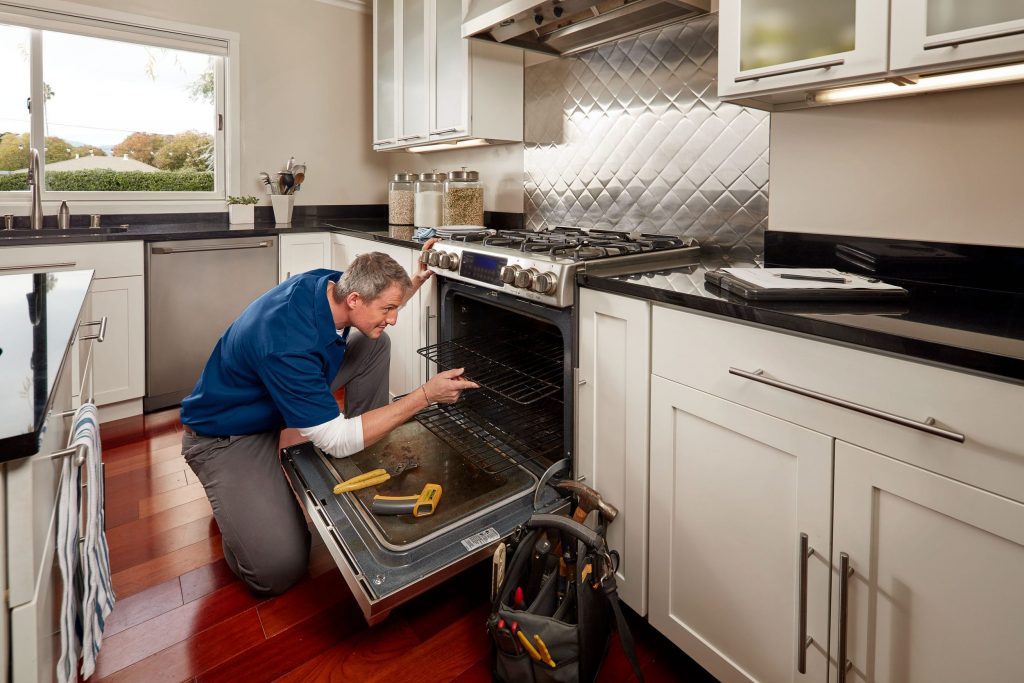Picture this: You’re preparing your family’s favorite meal when suddenly your trusty oven starts acting peculiar. The temperature gauge reads one number, but your roast tells a completely different story. Sound familiar?
Welcome to the wonderful world of oven troubleshooting, where recognizing early warning signs can save you from kitchen catastrophes and expensive emergency repairs!
Temperature Troubles That Spoil Your Cooking
Nothing dampens dinner plans quite like an oven that refuses to heat correctly. Your carefully timed recipes suddenly require guesswork instead of precision timing. When your appliance isn’t performing as it should, Built-in Oven Repair becomes essential to get things back on track quickly and safely.
Heating elements gradually lose efficiency through normal wear and tear. These hardworking components endure extreme temperature cycles daily, eventually developing weak spots that reduce heat output significantly.
Thermostats sometimes lose their calibration accuracy over time. Your oven confidently displays 350°F while actually operating at 300°F, creating frustrating cooking failures that seem mysteriously unexplainable.
Temperature sensors can malfunction, sending incorrect readings to your oven’s control system. This communication breakdown causes heating adjustments that work against proper cooking temperatures rather than maintaining them.
Built-in Oven Repair: Door Dilemmas
Gosh, aren’t door problems just the most frustrating thing? When seals wear out, precious heat escapes constantly, forcing your oven to work overtime while your electricity meter spins faster than necessary.
Rubber gaskets around oven doors become brittle after years of exposure to heat cycles. Small cracks develop into larger gaps that compromise energy efficiency dramatically.
Hinges bear tremendous weight repeatedly throughout your oven’s lifespan. Loose or misaligned hinges prevent proper door closure, creating dangerous situations alongside energy waste.
Self-cleaning oven latches serve critical safety functions during high-temperature cleaning cycles. Malfunctioning latches require immediate professional attention to prevent potential hazards.
When Modern Technology Needs Expert Attention
Today’s sophisticated ovens contain complex electronic systems that rival computer technology in their intricacy. Digital control boards manage multiple functions simultaneously through intricate programming.
Built-in Oven Repair Expertise Required: These advanced systems demand specialized diagnostic equipment that identifies specific component failures quickly and accurately.
Convection systems add additional complexity with fans, extra heating elements, and precise airflow management. Multiple interconnected components create numerous potential failure points requiring systematic troubleshooting.
Smart connectivity features introduce WiFi modules and app integration that occasionally experience software glitches or connectivity problems needing technical resolution.
Why Professional Service Makes Perfect Sense
Golly, working with high-voltage electrical systems without proper training sounds downright dangerous! Built-in ovens connect directly to your home’s electrical supply, creating serious injury risks for untrained individuals.
Gas-powered units present additional concerns including leak risks and improper connection dangers. Professional technicians understand safety protocols that protect your family and property.
Modern oven calibration requires precision instruments most homeowners simply don’t possess. Proper temperature adjustment ensures accurate cooking results and prevents component damage from incorrect settings.
Warranty Wisdom: Manufacturer warranties typically require professional service to remain valid. DIY repair attempts often void these valuable protections permanently.
Finding Your Perfect Repair Partner
Start your search by chatting with neighbors and friends about their appliance service experiences. Personal recommendations from trusted sources provide invaluable insights into service quality and reliability.
Check manufacturer websites for authorized service provider lists. These companies receive specialized training and direct technical support from oven manufacturers.
Read recent online reviews focusing specifically on built-in oven repairs rather than general appliance service. Specialized experience matters tremendously for complex built-in units.
Frequently Asked Questions
Q: How often should I schedule professional oven maintenance? A: Annual professional inspections catch developing problems before they cause complete failures. Regular maintenance extends oven lifespan significantly while preventing expensive emergency repairs.
Q: What’s the average cost for built-in oven repairs? A: Repair costs typically range from $150-$500 depending on required parts and labor complexity. Simple heating element replacement costs less than control board repairs.
Q: How long do built-in ovens typically last? A: Properly maintained built-in ovens operate reliably for 15-20 years. Regular professional service and proper usage significantly impact overall lifespan.
Q: Should I repair or replace my aging oven? A: If repair costs exceed 50% of replacement price, or if your unit exceeds 15 years with frequent problems, replacement often makes better financial sense.
Q: Can I safely repair my oven myself? A: Built-in oven repairs involve high-voltage electricity and complex systems requiring specialized training. Professional service ensures safety and proper repairs.
Smart Maintenance Habits
Keep your oven interior clean to prevent buildup affecting heating performance and creating unpleasant odors. Regular gentle cleaning beats occasional intensive scrubbing sessions.
Clean door seals carefully using mild soap and water only. Harsh chemicals damage rubber components, creating gaps that waste energy.
Use self-cleaning functions according to manufacturer guidelines. Improper use stresses components unnecessarily and can cause premature failures.
Preheat properly before cooking to ensure even heating and reduce strain on elements. Rushing this step affects cooking results while stressing your oven’s systems.
Making Smart Repair Decisions
Understanding when your built-in oven needs professional attention helps you make informed decisions quickly. Early intervention prevents minor issues from becoming major problems.
Professional technicians bring specialized knowledge, proper tools, and genuine replacement parts that ensure lasting repairs. Their expertise protects your investment while maintaining safe operation.
Choose service providers based on experience, proper credentials, and customer satisfaction rather than advertised prices alone. Quality repairs deliver better long-term value than cheap work requiring repeated fixes.
Remember that complex built-in units require professional expertise for safe, effective repairs. Attempting DIY fixes on sophisticated appliances often creates additional problems while voiding warranties.
Your built-in oven represents a significant kitchen investment deserving proper care and professional attention when problems arise. Quality repair services combine technical competency with excellent customer support, keeping your oven performing reliably for years ahead.




